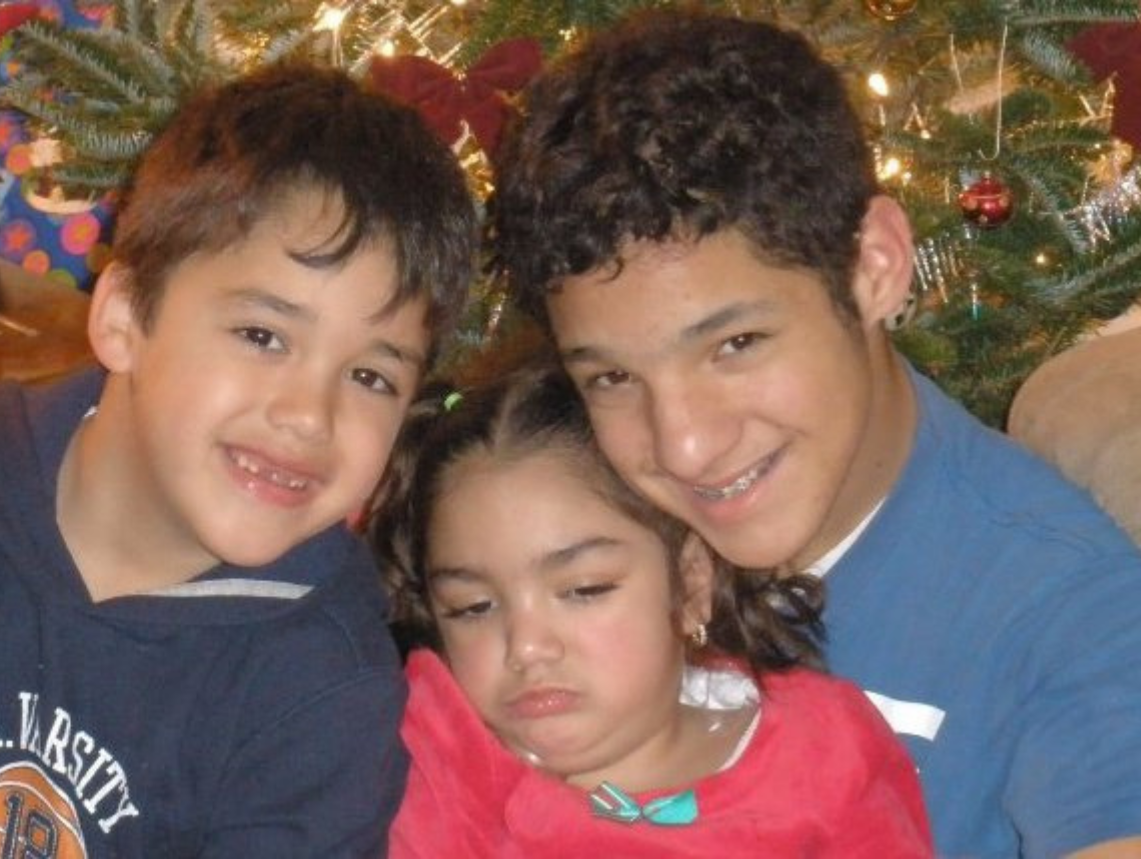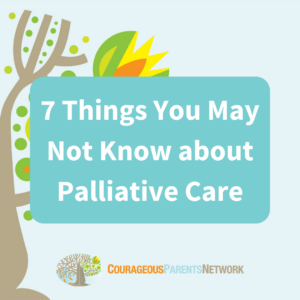Palliative Care
So much about coping with a serious medical condition centers around curative measures, but families need so much more. Parents need to feel confident that their child will be comfortable; that the medical team knows what matters to the family; that they will be supported as decision-makers.

Your Team:
A specialist whose aim is to improve the quality of life of their patients over the course of their illness regardless of stage, by relieving pain and other symptoms of that illness.
A medical professional who practices general medicine.
Professionals who have completed advanced training in a specific area of medicine.
Hospital-based palliative care clinicians are specifically trained in this field. Other specialists may have training in palliative care. Your child’s primary physician may be practicing palliative care with you and your family. Or they can help you find this extra layer of support.
In a growing number of medical centers families meet a pediatric palliative care (PPC) specialist or team. They are the physicians, physician assistants, nurses, nurse practitioners, social workers, chaplains, therapists and other providers who listen and help you advocate for your child and family. Their main goal is to help provide relief from symptoms of physical and emotional illness and stress at any time during the illness journey. This is a layer of support in addition to the specialty, disease-directed care that your child is receiving.
PPC professionals provide:
- Expert treatment of symptoms
- Instructions for managing your child’s condition when you are away from the hospital
- Guidance around important decisions you may encounter
- Age-appropriate help for your child in understanding and coping with their illness
- Support for siblings and other loved ones
- Coordination of complementary and integrative treatments, such as physical and occupational therapy, massage therapy, acupuncture and more
- Resources for coping with trauma, financial issues and other related concerns
Palliative care providers typically remain with you and your child from the time they join your team and through your child’s entire illness, however long or short—and sometimes beyond. They are the clinicians who talk with you about what your care goals and values are, and what matters to you and your family. These conversations, typically had over time, are the key ingredients to making thoughtful decisions about medical care, living with illness, and transition to end of life when the time comes.
Palliative care can be confused with hospice care. It is not hospice care (see below) and It is appropriate for any child (or adult) who has received a serious diagnosis or for whom the prognosis has become serious. In fact, palliative care can be helpful as early as diagnosis.
– Liz, parent of Colson
Advocating for Palliative Care
If you and your child’s medical team are not having conversations that sound like goals of care discussions, consider that you can:
- Ask if palliative care is available and request a consult. Even though your hospital may have a team, clinicians may not automatically refer you. They may believe that you don’t need palliative care at the time; they may assume that you will confuse palliative care with hospice and be upset; or they simply might not think of it in the moment. You can choose to meet with palliative care at any time, so do not hesitate to insist on the consult.
- If your hospital or clinic does not have a palliative care team, request access to clinicians who use palliative principles in their practice
- Initiate the conversation yourself, by indicating that you want to talk about what matters to you and your child. Your team may be worried that such a conversation would upset you and they don’t know how to approach it with you
- Investigate palliative care services available in the home. A social worker, local home nursing agency, community care agency and/or your child’s primary physician can help you to arrange for this if it is available in your community
Palliative Care is Not Hospice Care
Some parents are fearful of even considering palliative care, because it is easily confused with hospice care. They may believe that receiving palliative care suggests that they believe their child is dying, that they have given up on their child, and/or that the act of engaging with palliative care will hasten their child’s decline.
In fact, palliative care can begin as early as diagnosis and is not necessarily related to a diagnosis or prognosis. (Palliative care clinicians often are part of a hospice team as well, when hospice care is indicated.) Many parents indicate that the palliative care they and their child received—whenever it was initiated—has made all the difference in how they coped with, and remember, the illness journey. The CPN guide “Understanding Palliative Care and Hospice Care” explains the differences and how palliative care benefits the child and family.
Related Resources
-
 Pediatric cancer, Pain, and Palliative Care: from the parents and the doctors.video
Pediatric cancer, Pain, and Palliative Care: from the parents and the doctors.video -
 Introduction to Pediatric Palliative Careguide
Introduction to Pediatric Palliative Careguide -
 The value of Palliative Care: At first I thought they were the Grim Reaper, but I learned they would always be there for us.video
The value of Palliative Care: At first I thought they were the Grim Reaper, but I learned they would always be there for us.video -
 7 Things You May Not Know About Pediatric Palliative CareBLOG
7 Things You May Not Know About Pediatric Palliative CareBLOG -
 A PICU NP on seeing the value of pediatric palliative care at work.video
A PICU NP on seeing the value of pediatric palliative care at work.video -
 Understanding Palliative Care and Hospice Careguide
Understanding Palliative Care and Hospice Careguide